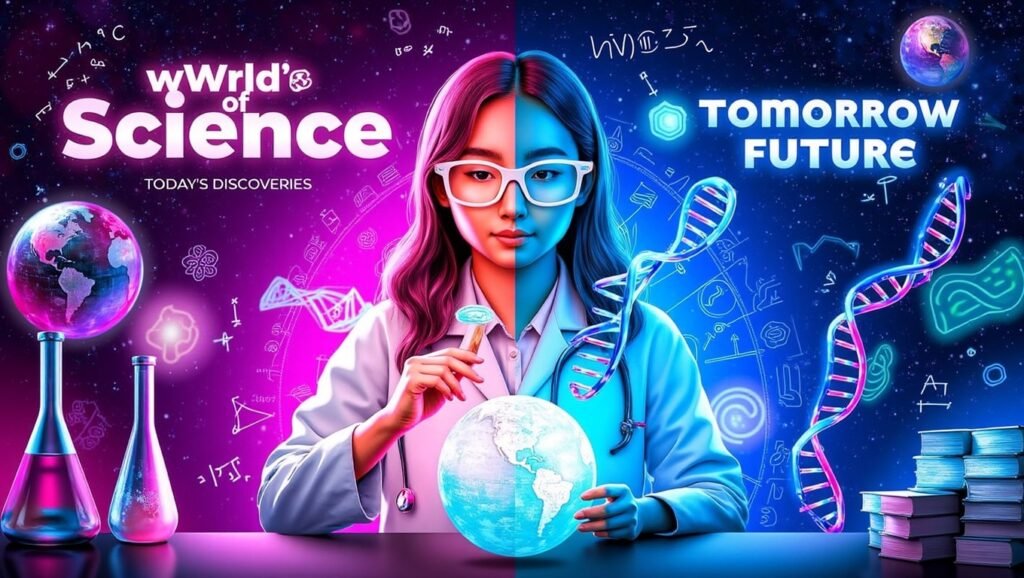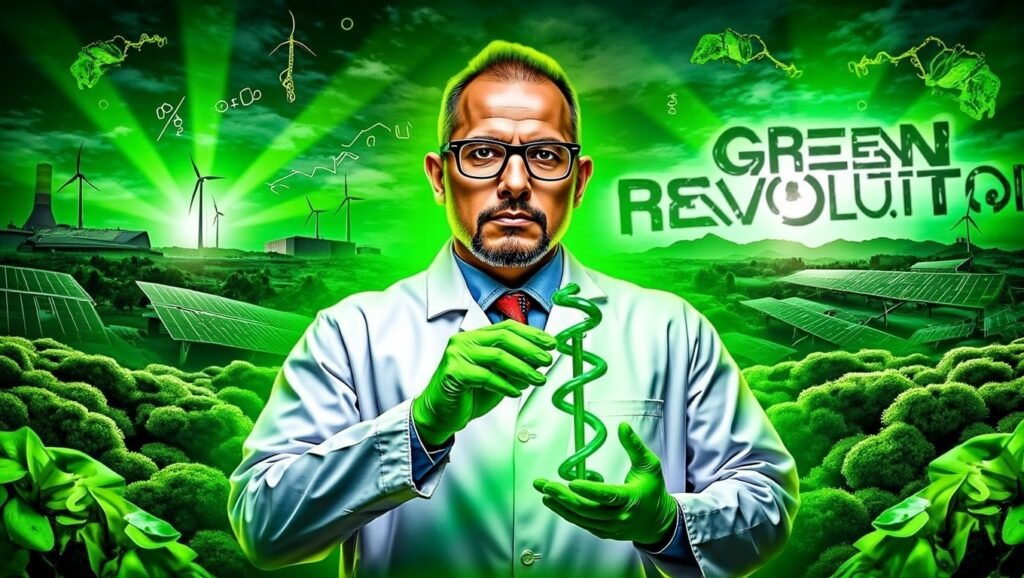Science is no longer limited to labs and textbooks in this innovative age. Every aspect of our lives is impacted by it, from the smartphones we carry around to the advancements in medicine that prolong our lives. Scientific discovery is the foundation of the modern world, and as we look to the future, the rate of progress will only quicken. This blog examine how the most fascinating scientific discoveries of our time are influencing our future in fields such as technology, energy, space, health, and more.
Table of Contents
1. The Power of Discovery: A Brief Overview
Progress has always been accelerated by science. Every era has seen groundbreaking concepts that have changed how people perceive the cosmos, from Newton’s laws of motion to Einstein’s theory of relativity. However, today’s innovations are not merely theoretical; they are also useful and developing quickly.
The fields of physics and biology are now coming together, computer science and medicine are combining, and environmental science is driving innovation and policy. The end effect is a golden age of discovery in which concepts swiftly transform into useful intruments that enhance people’s lives.
2. Artificial Intelligence and Machine Learning
Artificial Intelligence (AI) is one of the most revolutionary scientific fields of out time. What used to seem like science fiction has become ingrained in our everyday lives. AI powers voice assistants, chatbots, self-driving cars, YouTube and Netflix recommendation algorithms, and even scientific research.
Scientists are processing massive datasets more quickly than ever before thanks to machine learning, a branch of artificial intelligence. AI algorithms, for instance, have sped up the process of finding new medications. For instance, they can now identify possible COVID-19 treatments in a fraction of the time that would be needed with conventional methods. AI has the potential to enhance human creativity and discovery in the near future, making it a vital scientific collaborator.
3. Genetic Engineering and CRISPR
CRISPR (Clustered Regularly Interspaced Short Palindromic Repeats) has made it possible to edit the genetic code, which is llife’s instruction manual. This discovery makes it possible for researchers to cut and replace particular DNA sequences, potentially leading to the treatment of genetic disorders at their source.
CRISPR has already been used in experimental treatments for some cancers and sickle cell anemia. Gene editing is increasing crop yields and climate change resilience in agriculture. Although there are still ethical issues, genetic engineering has enormous potential to improve sustainability and health.

4. The Green Science Revolution
Environmental science has emerged as one of the most pressing areas of research due to the growing threats posed by climate change. Scientists are working feverishly to create climate-resilient agriculture, carbon capture technologies, and sustainable energy sources.
Intermittency is being resloved by scientific advancements in battery storage, and solar and wind energy are now more economical and effective than before. Biodegradable plastics and lab-grown meat are two more innovations that try to lessen our environmental impact.
To combat global warming, scientists are investigating geoengineering or intentional changes to the Earth’s environment, in labs all over the world. These technologies, despite their controversy, show how science might be essential to the survival of the planet.
5. The New Space Age
Humanity is being pushed toward the stars by science. Space exploration has been transformed by private companies like SpaceX and Blue Origin, which have made it more affordable and accessible. NASA’s Artemis program aims to send astronauts to Mars and then back to the Moon.
In the meantime, images of the early universe are being taken by space telescopes like the James Webb Space Telescope, providing insights into galaxies that are billions of years old. These missions contribute to the resolution of important issues regarding our origins and the existence of extraterrestrial life, so they are not just about exploration.
Deep space travel is becoming more and more feasible thanks to scientific developments in materials science, propulsion, and rocketry. It’s possible that the goal of colonizing other planets is closer than previously thought.

6. European Initiative: Attracting Global Scientific Talent
The European Union started a compaign to entice scientists and researchers to Europe in response to recent budget cuts in science and education in the United States. With the goal of enhancing Europe’s standing as a global center for scientific research and innovation, the ”Choose Europe for Science” initiative provides significant incentives like ”super grants,” extended contracts, and relocation bonuses.
7. AI-Driven Personalized Medicine
By integrating genetic information, lifestyle choices, and medical history to generate highly personalized treatment regimens, artificial intelligence is transforming medicine. Scientists are creating algorithms that can forecast the course of a disease and suggest treatments before symptoms worsen.
Additionally, wearable technology and AI are being combined to track health conditions in real time, allowing for proactive healthcare management.
8. Space Manufacturing: The Next Industrial Revolution
A promising new area of industry and technology is in-space maufacturing. Businesses like Astral Materials and Space Forge are using the special microgravity conditions of space to create high-quality products that are difficult to make on Earth, like advanced pharmaceuticals and ultra-pure semiconductor seed crystals. Large orbital factories might be built as a result, and resources taken from asteroids might even be used.

9. Solid-State Batteries: The Future of Energy Storage
The electric vehicle (EV) market is changing as a result of advancements in battery technology, especially solid-state batteries. Compared to conventional lithium-ion batteries, these batteries have a higher energy density, quicker charging times, and improved safety. Solid-state battery technology is seeing significant investment from companies like Honda and Nissan, indicating a move toward more effective and environmentally friendly energy storage options.
10. Fusion Energy: A Step Towards Sustainable Power
The sun’s energy source, nuclear fusion, has made great strides toward becoming a practical energy source. By late 2025, the Massachusetts-based Sparc reactor could become the first to generate net energy gain, advancing humanity’s ability to use clean, limitless power.




